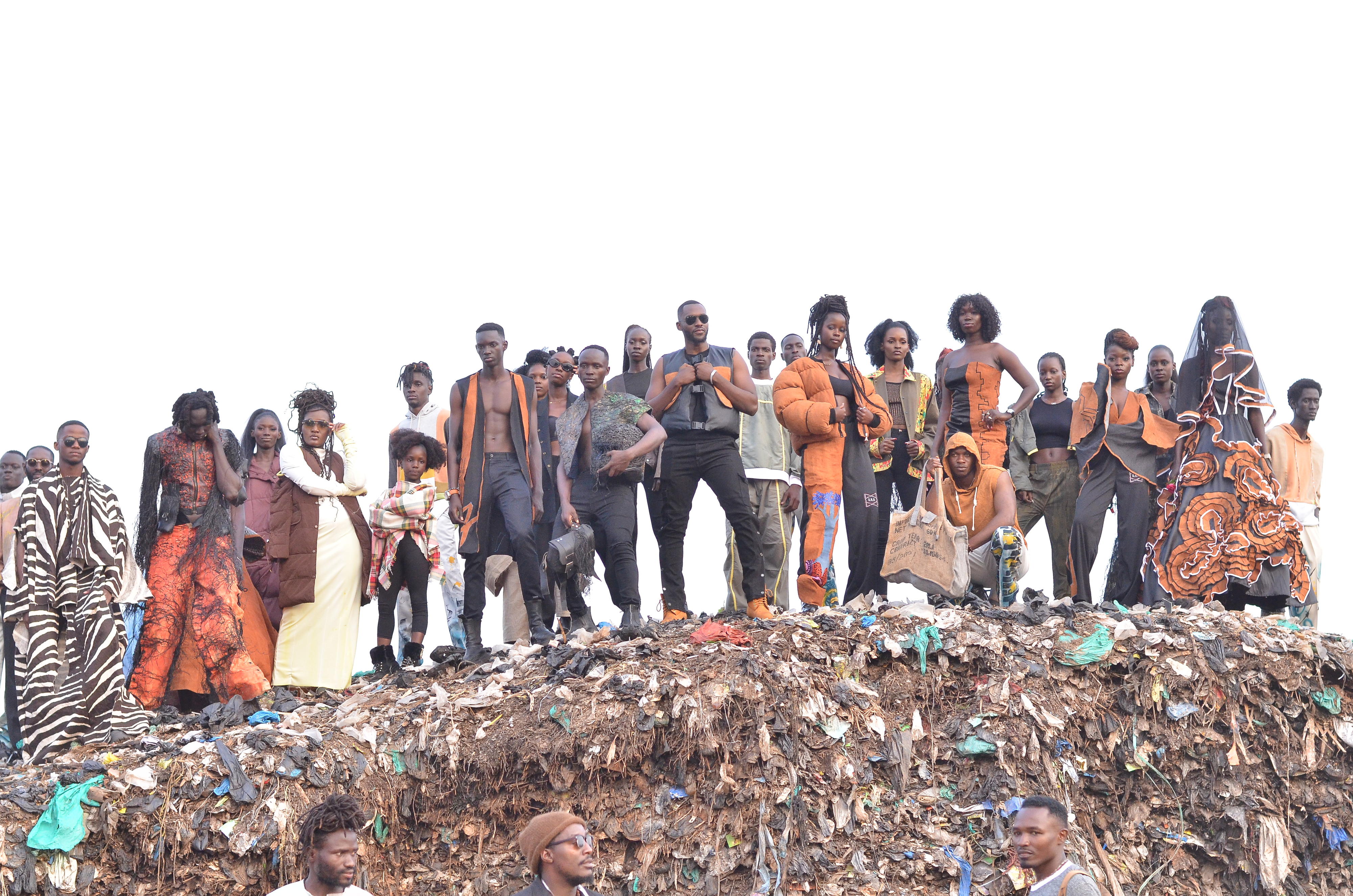Shebang fashion show brings runway to ghetto

Taking the show away from the conventional runway was to pass the message of climate change and recycling. PHOTOS | ISAAC SSEJJOMBWE
What you need to know:
- The designers showcased five collections, all recycled from waste and each collection was inspired by stories from this community and how waste affects them.
The fourth edition of the annual Shebang fashion show happened last Saturday evening in the ghettos of Namuwongo at a place called Namuwongo-Kasanvu zone.
Unlike the past edition, this edition saw fashion designers showcase at the trash collection area with people in the surrounding areas watching the showcase for free.
Among the designers who showcased included Musema Culture, Bobbin Case based in Kenya, Quill Clothing by Ali Musinguzi, Trevor Kaye of ORM, a Ugandan born and raised in the UK who came to promote original regenerative fabric (barkcloth), and Njola Impressions.
The designers showcased five collections, all recycled from waste and each collection was inspired by stories from this community and how waste affects them.
According to Shyaka Farid Lwanyaaga, the founder of the Buntu Wellbeing Experience network which organises the Shebang Fashion Show, the event has this year transformed into reclaiming waste to power fashion as the ultimate climate and behavioral change tool.
“We have been doing the fancy runways but this time we decided to bring the showcase stories to the people themselves. This year’s theme is the contribution of waste to climate change and with fashion contributing to almost 10 percent of the carbon emissions, we decided to bring it here to make the message bigger and to make the people know that their life stories matter,” Lwanyaaga said.
He added that the fashion show will not go back to the fancy runways as they will embark on community shows as a story-telling tool.
“We will be moving to different communities after 10 months preparing the models and designers who will be training and passing on their skills to the people in the community who want to be part of the show.
The first edition of the Shebang fashion show was themed ‘Menstrual Health and the shame around menstruation’ while the following year they looked at sexual reproduction. This year’s theme has been climate change.




